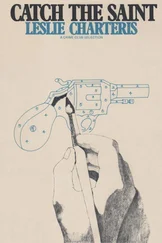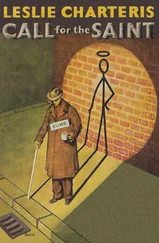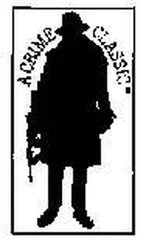“And how did I make you come to Athens in the first place?” Patroclos scoffed.
“You didn’t. That was sheer opportunism. Oh, you’d planned to set someone up before long, of course — I just happened along at the ideal time. I haven’t always been an upright citizen, but I do have a reputation, though I say so myself, for being nobody’s patsy, and I daresay the challenge appealed to your vanity. If you could fool me — and you very nearly did — you could fool anybody. Anyhow, you seized the chance when you saw my name on a passenger list. And then you exploited it for all it was worth.”
“You are beginning to sound like some kind of lunatic.”
“You played me like a fish on a line. For a long time, I had an uneasy feeling I was being manipulated, but I couldn’t quite see how. But that’s your forte — manipulation. Dio, there’s no doubt the plan was brilliant. There was just one serious flaw...”
Diogenes Patroclos stared at him impassively.
“Which was...?”
“The whole basic premise,” continued the Saint. “As I said right at the start, the idea of a perfect impersonation is a lot of baloney.”
“And yet that impostor has still deceived you.” Patroclos persisted. “You saw with your own eyes—”
“—just what you meant me to see,” Simon completed with inexorable calm. “You did it so well you almost had me believing in this darned impersonator — and to begin with I was about as sceptical as anyone could be. Appearance, voice, mannerisms, knowledge, habits — a human being’s just too complicated a thing to be mimicked that closely. My whole instinct was against it. But I’ll admit you played your hand cleverly enough to get me seriously wondering if I could have been wrong after all. Starting when I saw you and the other Ariadne in London.”
“But I suppose I was sure that you would see us?” Patroclos argued sarcastically.
“You’d given me the address as a starting point. You knew I’d go there and watch the house — and before long I’d be bound to see you. And you guessed that as soon as I did, the first thing I’d do would be to check by phoning Athens and asking to speak to you there. You even had something pretty good worked out for that. A simple trick, but good enough.”
“What was that?”
“A dictaphone recording for your Ariadne here to turn on, with the kind of answer that would be sure to fit in well enough with the kind of thing I could be expected to say.”
“You should be writing detective stories,” Patroclos said, but his confidence was beginning to have a hollow ring.
“My friend Charteris has often said the same thing,” Simon agreed good-humouredly. “I must have a go at it one day. But when I do, I’ll have to give you credit for some beautiful touches, like for instance pretending some time back to have forgotten about some startling shirts you’d ordered before your last trip away. You figured I’d be sure to find an opportunity to question Bainter — as I did.”
Diogenes Patroclos was no quitter. His innumerable worst enemies had never said that of him, and it would have been a ludicrous assertion in any case. A man who gives up before the ultimate sanction simply does not get into the millionaire bracket. Even now, Simon felt, in allowing the argument to go on to the almost absurd lengths of the time-honoured detective-story cliché in which the stereotype sleuth spends endless minutes of the last act explaining with clairvoyant precision just what everybody else was plotting and pretending, Patroclos was in fact treating himself to a complete preview of the case against himself, probing it for any weak points, and assessing every possibility of brazening out his own defence.
“If you had been clever enough to catch that impostor,” Patroclos said, “his confession would have proved what nonsense you are talking. But now I think you are only making these absurd accusations to cover up your own failure.”
“Yes, that was a grand finale,” mused the Saint. “The dash after your Rolls with no one in it but the driver — and the plane with no one but the pilot. I suppose he did parachute out while the plane was still over land, after setting the automatic pilot to make it crash in the sea? Or was there a time bomb in the briefcase that went on board?... Anyhow, conveniently complete end of impersonator, leaving it theoretically impossible to prove that he never existed. Except that you’re still stuck with at least one accomplice too many.”
“Who?”
“That chauffeur, who knows that no double of yours got on the plane. And whatever you’re paying him, or unless you’ve already disposed of him, I bet he’ll talk under pressure. And the pressure will certainly be applied when I tell my story, and back it up with that dictaphone record which you so carelessly didn’t erase.”
The Saint’s remorseless prosecution came to this conclusion with such relaxed assurance that he might have commanded three times the muscle of Patroclos’ minions, instead of being in a lonely minority of one. And the shipping Midas, almost physically impaled on the Saint’s sapphire gaze, could only have known that the last hope of bluff and bluster was gone.
“You can’t win ’em all,” Simon told him, with hypnotic softness. “Give up, Dio.”
Patroclos scowled at him for a long moment.
“So,” he said finally. “So much work for nothing... But if you will not be a witness for me” — he spat out the words — “you will never be one against me!”
He turned to the Captain, who obviously spoke little if any English, and who had been listening uncomprehendingly to this lengthy dialogue while his crew men waited for a lead for him.
“Kill him!” he commanded, in Greek. “Skotoseton!”
And the Captain pulled a revolver from his hip pocket, showing only relief at receiving such a simple order.
But the Saint had long foreseen how desperate his situation might become, and had resolved that if he was destined to end his career down in that cargo hold, trapped like a rat behind a pile of boxes, it would only be after he had given the ungodly a show for their money; after he had gathered up in himself and released every last milligram of furious fighting energy that was to be found in his body. And when the testing moment came, his sinew did not fail him.
Every tight-strung dyne of pent-up alertness and determination went into gauging the arrival of that moment and responding to it with almost supernatural speed so as to avoid the deadly lump of lead that would hurtle out of the gun barrel that was swinging up towards him in the Captain’s hand. And in the fraction of a second before the Captain completed his pressure on the trigger, the Saint dived sideways; and the bullet sang past his left ear and thudded into a crate.
Overlaid on the loud reverberations he heard Patroclos shout: “Fool! Be careful! The ammunition!”
And then in what seemed like a mere fluent continuation of that dive, the Saint swept up the metal-shears he had been using with his right hand and hurled them at the Captain. They smashed point first into the Captain’s right arm, and he dropped the gun with a yelp, and then before any of the seamen could reach him the Saint had snatched up a grenade from one of the broken crates.
He held it aloft in both hands, and there was cold steel in his voice as he spoke.
“If anyone makes a move, I’ll pull out the pin and throw this pineapple without the slightest hesitation. You may succeed in getting me, but this whole lot’ll go up with a bang — and all of you with it.”
Patroclos and the Captain and crew froze. The Saint began to edge towards the ladder.
“Don’t look so worried, Dio,” he mocked. “I’m sure you can buy enough sympathy from the Greek authorities to stay out of serious trouble. Of course, you’ll never be persona grata in America again, but there are still other continents for you to operate in. Any of them must be better than being scattered around Piraeus in small pieces.”
Читать дальше











